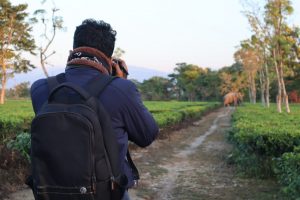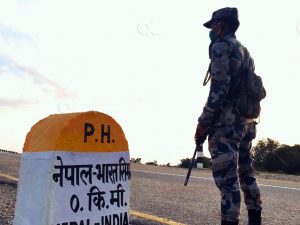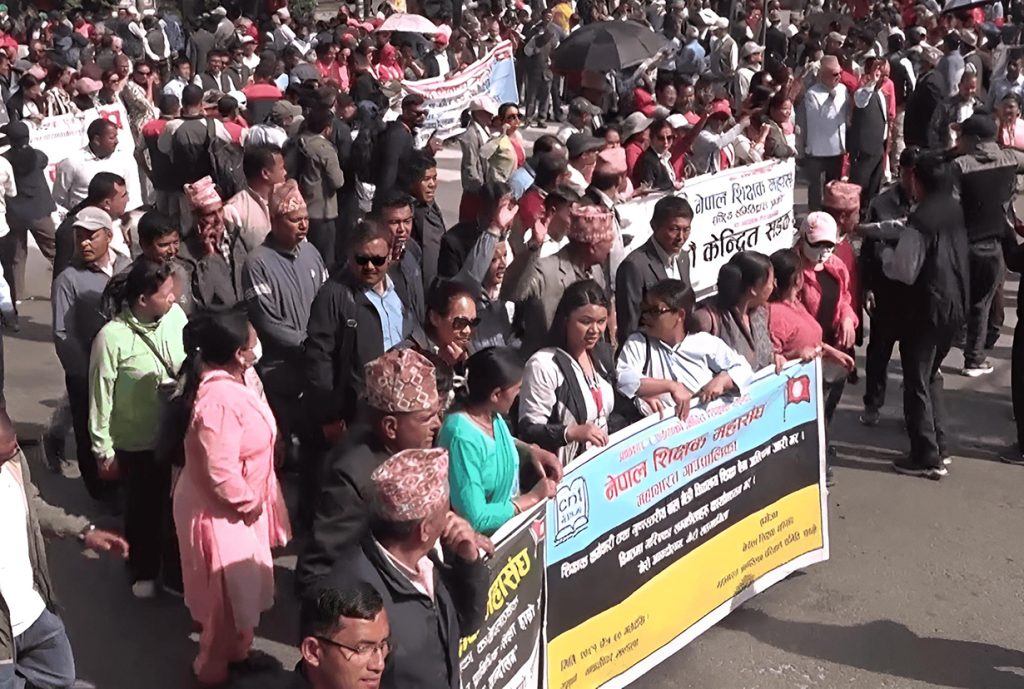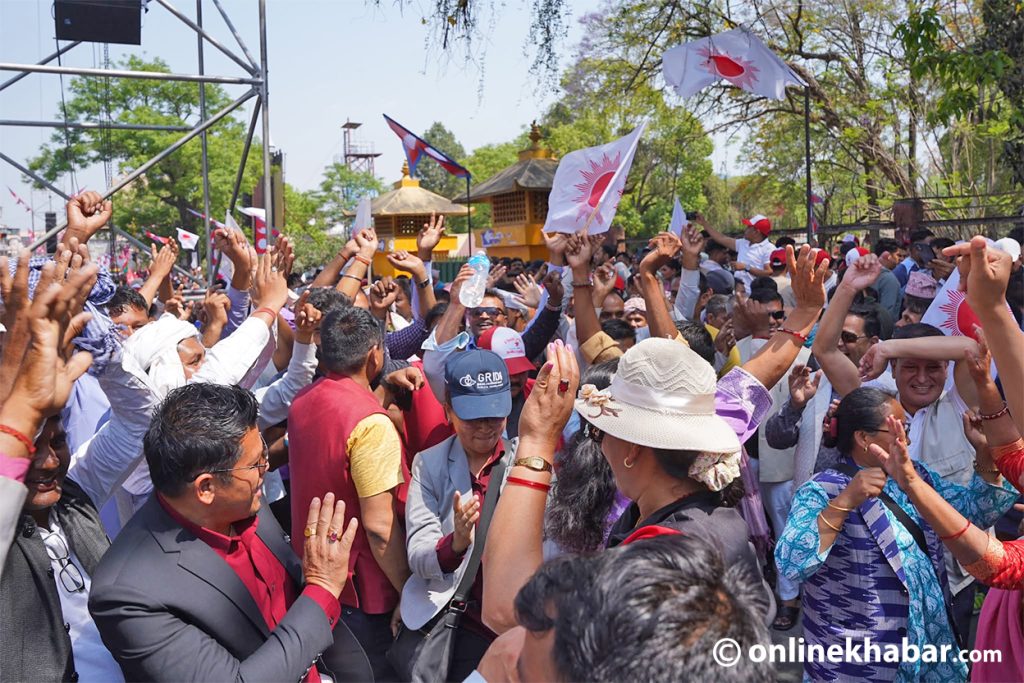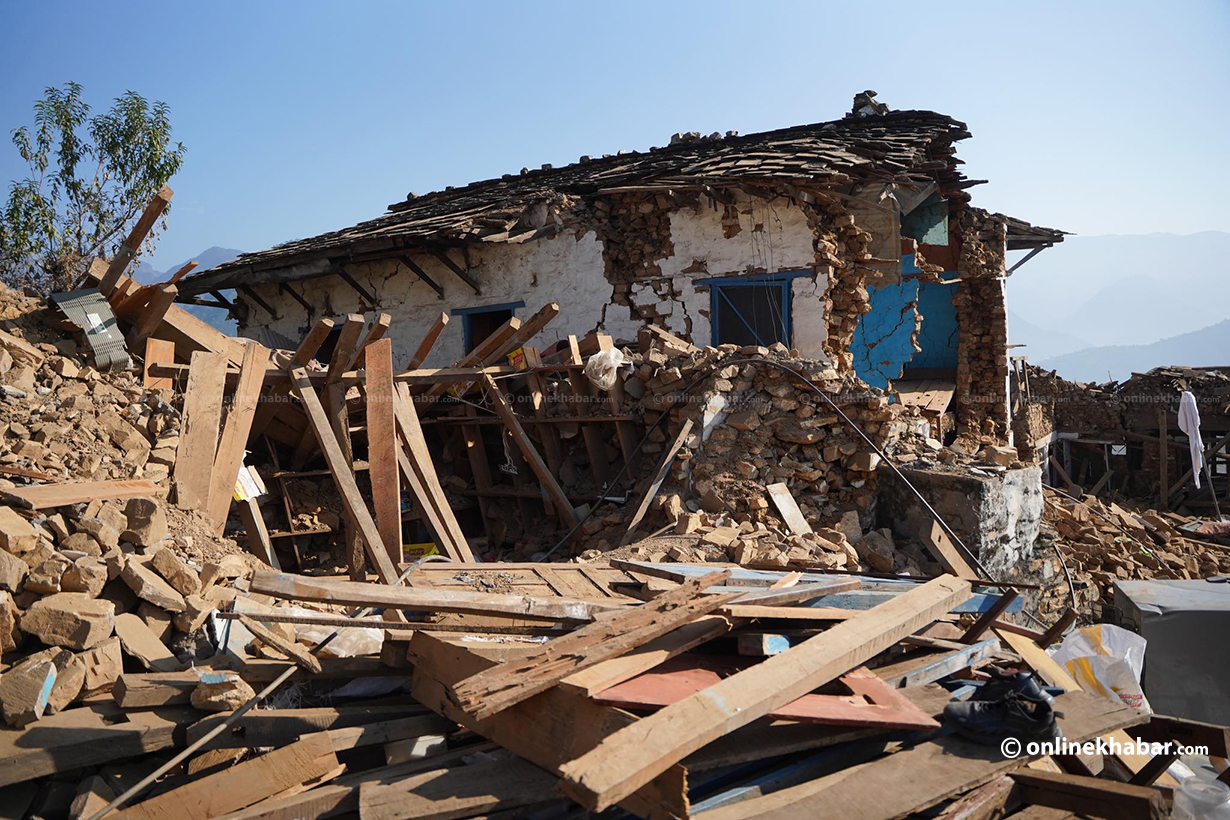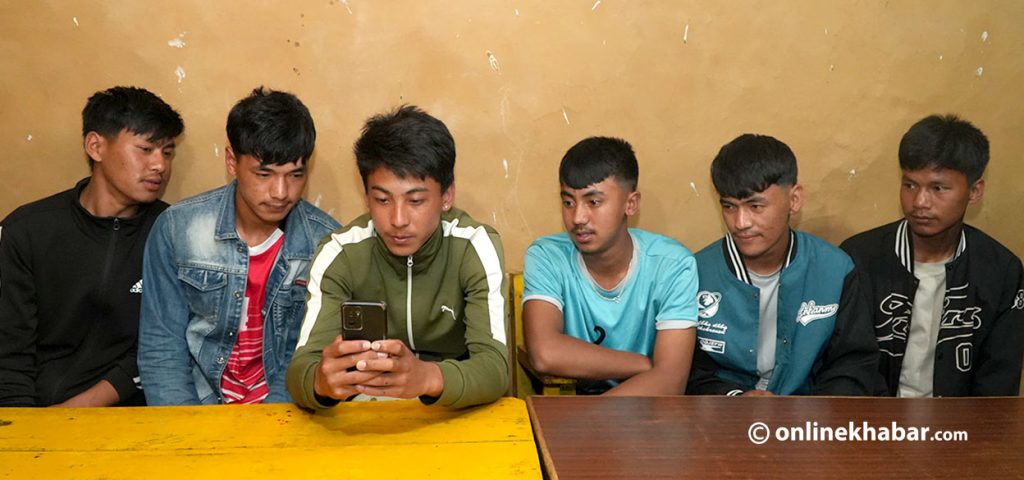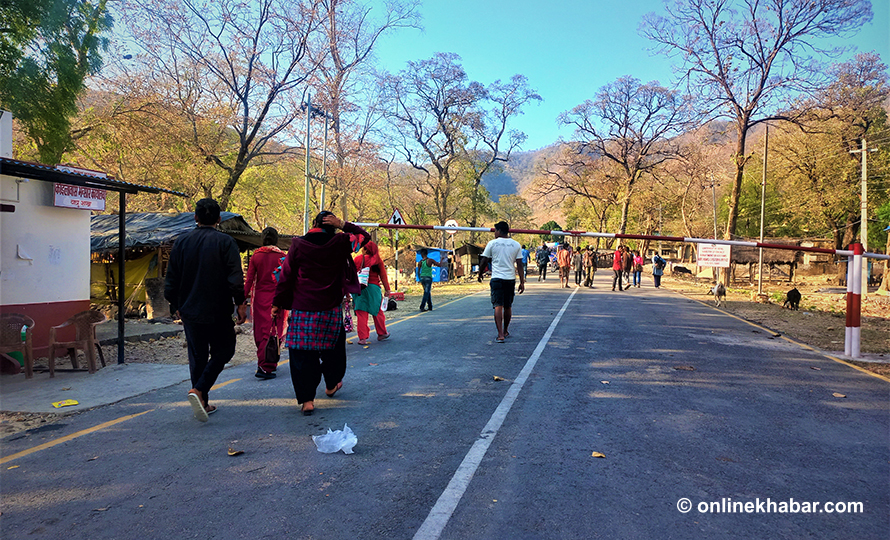
Krishna Prasad Ghimire, 55, of Koilabas, Dang, western Nepal, spent many years of his life in frustration living in the Nepal-India border area. Despite living in his own country, he always felt distant from his homeland.
“In sorrow, we always remember our country but the country always unheeded us,” says Ghimire.
His complaint about the country is normal owing to the state’s unfair attitude towards the people residing in the border area. The people living near the Nepal-India border have to rely on India for essential needs from drinking water to healthcare and education to employment.
While living their life in the land of Nepal being Nepalis, they have only received indifference from the country and deprivation of their basic needs.
Humiliation and trouble

The people living in the Nepal-India border areas are deprived of drinking water facilities. “The rivers and wells have dried up and this compels us to go to India to fetch water,” says Ghimire, “It is not easy to bring water from India. The Indians humiliate us and security forces create trouble.”
For ages, the native of the Nepal-India border in Dang has been facing these problems. “How long will we have to live like this,” Ghimire asks.
Koilabas, Gadhawa rural municipality-7, is an old Nepal-India border point. The area has around 250 households. The Nepal government has not provided even the basic facilities to this area.
Another major issue in southern Dang is a lack of health services. Koilabas has one health centre, but it only provides basic health services. If one suffers from a major health issue, one has to travel to India.
The Musi area, which is 10 km far from Koilabas, also does not have a health facility. Not only that, there is no proper access to transportation in this area. “During the monsoon, the roads are closed,” says 45-year-old Sumitra Kumal of Musi border, “In such conditions, people can lose their life for not getting health treatment on time.”
Government’s indifference and people’s helplessness

Mahendra Basic School of Koilabas near the Nepal-India border runs classes only up to grade eight. After that grade, many students do not continue their studies. While some students go to India for higher education, there are those who cannot afford to go to India but continue their education in Lamahi and Ghorahi, cities of Dang.
Malati Pun of Koilabas says that her daughters did not continue studying after grade eight. One daughter got married and another went to India for employment.
Saddam Siddhiki, a former ward chair of Koilabas, says that children’s future has been pushed into darkness due to the unavailability of schools there. “Families with weak economic status cannot send their children to the cities for their education,” says Siddhiki, “Those who have gone to India have also dropped out and begun working there.”
According to Siddhiki, the government has remained indifferent towards their appeal for establishing schools for higher education near the Nepal-India border.
Due to the lack of employment opportunities in the country, India is the main source of income for the residents of border areas. “Every day, men go to India. They work all day and return home in the evening,” says Rabin Tamang of Koilabas.
Moreover, due to the lack of irrigation facilities, the land which could grow different crops or vegetables always remains dry. Hence, there is no other option for them but to go to India and earn for living.
“Besides going to India, we do not have any other alternatives,” says Tamang. However, doing to and fro from Nepal to India, they have to face harassment from the local Indians and the authorities of India.
“Nepali citizens are abused by Indians on a daily basis. Sometimes they rob and beat us,” says Ram Kumari Sunar, 50, of Musi border, “We are being wrongly treated here, but there is no one to speak for us.”
There are a lot of incidents where Nepali people are abused in the Nepal-India border area. “We can’t do anything to them (Indians),” she says, “We are even misbehaved by Sashastra Seema Bal, the Indian security force at the border.”
There are 33 border points in Dang, but due to geographical challenges, there is not any presence of government bodies and security forces in these areas. Sunar complains about the indifferent nature of the state towards them and says, “The country has just given us land and nothing else.”
This story was translated from the original Nepali version and edited for clarity and length.






